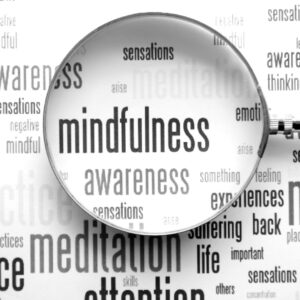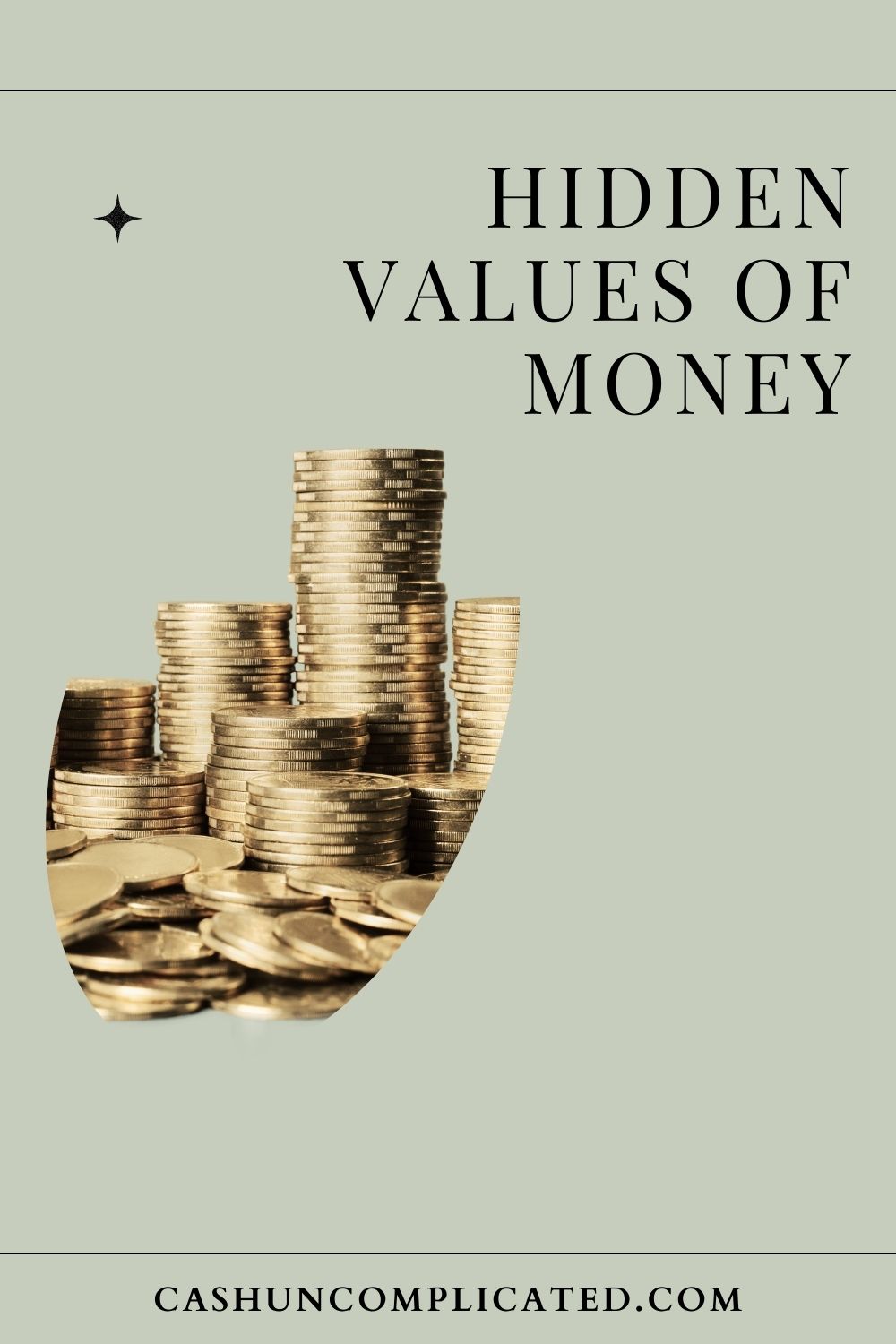The phrase money gratitude isn’t a term that comes up in regular conversation. In fact, there are all kinds of thoughts and ideas around money, and gratitude isn’t usually one of them. It’s really important though, and I believe it can greatly help anyone’s personal finance position.
What is Money Gratitude?
Money gratitude is being thankful and grateful for what you have. It’s showing gratitude for being able to afford a place to live, the transportation you take to work, the food at the store, etc. A consistent attitude of appreciation for what you already have.
Why Money Gratitude?
If you have the technology to read this post, you have a lot to be grateful for. Sure, you may not be the wealthiest person where you live, but you have a lot. Think about all the things you do have, such as:
- Clean drinking water direct out of your faucet
- Abundant choices for food and nutrition
- A form of transportation to get where you want to go
- Access to communicate with family and friends all over the world
When we think about and are grateful for things we do have, that creates appreciation and abundance. It’s hard to be grateful and abundant while being fearful and scarce. The two don’t go together.
There are so many things to be grateful for. It’s important to recognize and keep moving forward. Being grateful doesn’t mean not striving for more, it just means appreciating what you do have and moving towards improvement.
How to Achieve Money Gratitude
There are lots of way to achieve money gratitude. I use the word “achieve” because it’s something everyone has to work towards. Gratitude doesn’t always come naturally, so you have to work and train your mind on it. Start with these eight ideas.
Number 1: Mindfulness/Look Where You Are
Mindfulness is a term that has become more mainstream in the past few years. As it relates to money gratitude, mindfulness is being aware of the abundance available in your life.
Think about your ability to go to the store and purchase virtually any food and drink you want. Or to quickly travel 30 miles from your home using a car or another type of transportation, get on an airplane, FaceTime family halfway across the world, etc.
This is one of the greatest times in all of human history to be alive. There is a lot to be mindful and grateful about, much of which we forget about because we’re so accustomed to a high standard of living.
Even 100 years ago, much of this abundance and technology didn’t even exist. Going to the store to get almost any type of food you want, traveling in a car or airplane, cooling and heating in your home, and even electricity were all unfathomable centuries ago.
Number 2: Recognize What You Have
Money gratitude improves as you recognize what you have, rather than what you don’t have. Think about all the things you have in life. Some examples include:
- A job/career that you enjoy and pays you
- Relationships with people all over the world
- Access to a variety of live and recorded entertainment
- A safe place to live
There are so many day to day things that people take for granted. If you have the technology to read this blog, you have more than 99 percent of people in all of human history.
Even kings and queens of centuries past didn’t have access to the wealth and convenience many Americans enjoy today.
Think about this question: Would you rather be middle class today or a king/queen in the 1500’s? I can tell you what my answer is, and it doesn’t involve being a king.
Number 3: Appreciate the Expensive and Inexpensive
The third way to have money gratitude is to appreciate everything in life–including the expensive and inexpensive. Most people can wrap their head around appreciating a beautiful house and a nice car. Those are kind of mainstream societies ideals and many people hold that appreciation.
But not everyone appreciates the inexpensive or routine. Think about some of the following inexpensive, or even free things:
- A few hours in a park
- Walking through a downtown area
- Cup of coffee on the porch
- Drive along the coast
All of these things are either free or very inexpensive. Money gratitude is not just about the very expensive or luxurious. It’s also about the inexpensive day to day things that so many people don’t think about.
Related: 104 Things to do That Don’t Cost Money (or Very Little Money)
Number 4: Be a Value-Based Spender
One of the most important concepts in my financial journey is value-based spending. The idea is to spend only on necessities and things you truly value and enjoy. It’s a way to weed out the unimportant and focus on what you really want.
Value-based spending helped me hone in on what really matters to me, naturally eliminating some of the things I used to spend on. It’s a seamless and easy way to save money without feeling deprived.
Another great benefit to value-based spending is that it will provide you with money gratitude. After engaging in value-based spending, you will find yourself being more grateful for the things you do spend money on. There will also be an appreciation for your ability to NOT spend on things that don’t matter.
Related: Value-Based Spending: How to Create a Budget Around What You Value
Number 5: Inflow and Outflow of Money
Appreciate the inflow and outflow of money. I know that I used to stress over having enough money on a month to month basis. Every month was a new test to see if I could have enough to get by. A simple mindset shift can change that perspective though.
Rather than seeking just to have enough, appreciate the inflow and outflow of money. Appreciate your source(s) of income, whether it be from your job, a business you started, investments, or any other source.
Think about how that source of income is giving you the opportunity to purchase things that enhance your life and allow you to live well. The inflow of money leads to the outflow, and the cycle continues month after month. The cycle of inflow and outflow includes:
- Earning a living
- Funding your necessities, lifestyle, and investments (future lifestyle)
- Creating a balance between earning activities and leisure
Don’t just try to “get by.” Appreciate the inflow and outflow and the cycle it creates for you.
Number 6: De-Clutter
The sixth way to achieve money gratitude is to de-clutter. De-cluttering serves many purposes, including:
- Getting rid of things you no longer use
- Creating more space
- More appreciation of things you decide to keep
- Providing someone else the opportunity to enjoy what you no longer need
Let’s take a deeper look at number three specifically. When you intentionally decide to keep something, you are much more likely to have a higher appreciation for that item.
For example, if you’re cleaning out your living area and decide to keep some pictures (and frames), books, and some other decorations–those are things to be grateful for. You had a chance to get rid of them, but you decided to keep them. They are still around for a reason, and it’s something to be grateful for.
Number 7: Giving Time and Money
Giving doesn’t just have to be about money. It can also be about time, effort, and resources. Someone giving a few hours on a Saturday and bringing some of their friends is very valuable and meaningful. I would argue it’s just as valuable as someone giving a few hundred dollars to a cause.
Giving increases money gratitude because it puts a pause on the ordinary and gives perspective. Anyone in a position to give their time and/or money is in a really great position. Not everyone is in a spot to be able to give their time and money, so it’s something to be celebrated.
Plus all the other benefits of giving, most notably helping other people in need, serving a greater purpose, improving the world, etc. So many benefits if done for the right reason.
Number 8: Purpose Behind Money
The average American goes to work, pays the bills, maybe invests a little bit, and repeats the process next month. Finding purpose behind money creates a big why and often results in money gratitude as well.
Someone working hard either on a business, job, or other form of income producing activity is much more likely to be fulfilled when they have a purpose behind the money they are earning. For example, someone using their money to:
- Put their children through college debt free
- Contribute money to provide food and shelter to those in need
- Starting a scholarship for a student(s) who have worked hard and overcome adversity
Purpose creates a “why”, which goes on to create more purpose. And everyone needs purpose.
Conclusion
It’s important to show money gratitude. Life isn’t just about accumulating a bunch of money and having it sit in a bank account or investment vehicle. That’s shallow, and there’s not a lot of meaning to it.
When we have/show money gratitude, there’s opportunity to do more good.
Money gratitude takes the shallowness out of money. It brings out real purposes and creates value for others.
How do you show money gratitude?












